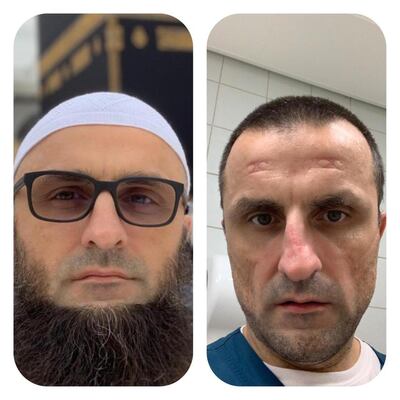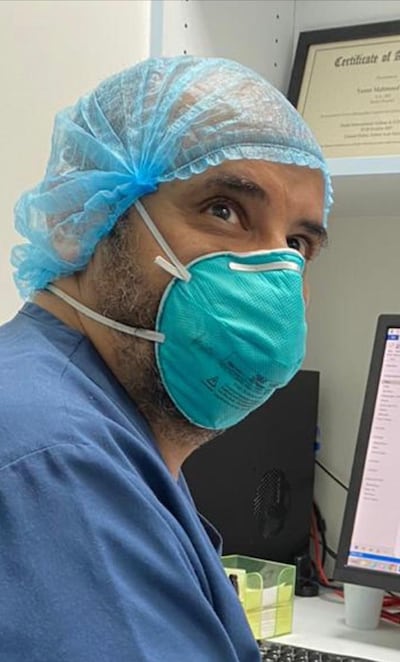A frontline medic who doubles as an imam has urged the public to shun baseless anti-vaccine sentiment.
Almir Smajlovic encouraged people to take the jab as it becomes available after witnessing the trauma of patients in intensive care.
The 42-year-old is a specialist in respiratory care - training and overseeing medical staff in the use of ventilators for severely ill patients and witnessing first-hand the toll the virus has taken.
The Bosnian-Canadian has sought to tackle some of the myths and rumours that swirl around social media that governments now worry will put people off taking the shots.
“The pain and suffering caused by this virus is unimaginable,” Mr Smajlovic said.
“But the conspiracy theories are unfortunately spreading. If you look around you will find many of the people who do not believe in vaccines."
The pandemic has led to the further rise of so-called anti-vaxx sentiment.
In the United States, it appears to have the strongest hold, with public demonstrations against both vaccines, the wearing of masks and other restrictions.
In France last month, a survey by respected pollsters Ifop found 59 per cent of people asked did not intend to take a vaccine, up from 46 per cent in October. Results for a separate Ipsos poll were better in the UK and Germany, where 79 per cent and 69 per cent said they had faith in a coronavirus vaccine.
"Unfortunately, there are still people out there who believe that this virus is a hoax and that’s why we need to work on the grass roots level and talk about the importance of the vaccine," said Mr Smajlovic, who works at Dubai Health Authority's ventilator centre and oversees the use of the life-saving machines at government-run hospitals.
He has tried to dispel any myths and concerns by speaking to worshippers after Friday prayers.
He also took the decision to shave his beard – it is encouraged in Islam that men maintain one – to protect his patients by ensuring his face mask fit better.
Mr Smajlovic said he had seen the pain the virus caused patients and their families and hoped widespread vaccinations would put an end to it.
He took the first of two shots of the Pfizer-BioNTech jab last week, one of two inoculations available in the emirate and which is 95 per cent effective against the virus.
The other available across the country was developed by Chinese drugs maker Sinopharm, which was trialled in Abu Dhabi on 31,000 volunteers. It was found to be 79 per cent effective and has been rolled out for thousands of people.
Both vaccination campaigns are free and voluntary.
“I tried to reassure my friends and family back home in Bosnia and sent out messages in English and in my language on the importance of the vaccine,” the father of six, who moved to the UAE in 2014, said.
He said most people have shown interest in being vaccinated but there remains a substantial group who are reluctant.
“There is no other way around this virus. I have dealt with it first hand,” he said.
Mr Smajlovic said he came across individuals who believed they would be protected through herd immunity instead.
Herd immunity occurs when a sufficient percentage of a population has become immune to an infection, whether through vaccination or previous infections.
“I’ve noticed that everybody gets their news from social media and [anti-vaccine sentiments] is being spread by people who don’t follow the government guidelines or the scientific community - people who don’t know,” he said.
“If you are not sure, ask us – the frontline workers. Ask the doctors. Ask the scientific community."
Frontline colleague Yasser Ajina, 52, a senior respiratory therapist at the DHA-run Rashid Hospital, said any side effects caused by the vaccine would be nothing compared to potential effects of Covid-19.
He received the Pfizer-BioNTech vaccine last week and has experienced no symptoms so far.
“Some people don’t believe in the vaccine and that is up to them - but they should know that they are putting themselves at a high risk,” he said.
“If you don’t care about yourself then at least care for others.
“If any of the alleged theories or symptoms come true they are all minor compared to the implications of Covid. Some patients don’t come out of it and have died in front of our eyes."














